

Tao Te Ching
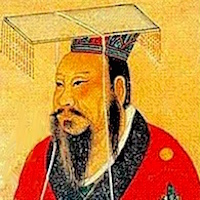
Xin 新朝 (9 – 23 CE)
Though only lasting 14 years and only having one emperor, Wang Mang, this short period bridging the Western and Eastern Han is still considered an official dynasty. Wang Mang was a visionary social reformer, Confucian scholar, and tireless leader but became fixated on ways of the past and failed to understand and relate to practical details and necessary political strategy. A major Yellow River flood led to extreme famine, a consensus that Wang had lost the Mandate of Heaven, many rebellions, and finally his own death during an attack on his capital. His reign is considered an early experiment in socialism and he abolished slavery, nationalized the land, fixated commodity prices, developed a planned economy and worked tirelessly to make the country prosperous and happy. Unfortunately though, his idealism far outranked his realpolitik, he listened to his flattering subordinates but not to his honest advisors who told him the truth, and his reforms didn’t take hold. Nevertheless, the legacy of this brief period reverberated down through Chinese history establishing a cultural foundation for communism.
Sages (8)
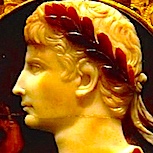
Augustus (Caesar)
63 BCE – 14 CE
Founder, first Emperor, and architect of the greatest empire of ancient history, the Pax Romana golden age, the longest period of prosperity in history, a regime that lasted almost 1500 years; Augustus became heir to Julius Caesar when 18 and leader of the western world at 31. Living simply like a philosopher instead of a king, he began with his world in corrupted chaos and established a balanced blend of order and freedom. He made good laws, helped both rich and poor, personally oversaw extensive infrastructure, 250,000 miles of roads, created police, fire-fighting, and courier services. He ruled Rome for 40 years and yet died believing he was a complete failure.

Jesus
3 BCE – 30 CE
Descriptions of Jesus were written in New Testament documents between 70 and 150 CE, a time of many different Christian books, many different gospels. In 170 CE church leaders first decided which books were “official,” which weren’t. More were added later and the modern version finalized at The Council of Hippo in 393. Some historians believe this selection was at least partially based on politics, patriarchy, and power. In any case, many of the banned and burned books known as Gnostic Gospels seem to have more wisdom and understanding, more connection to the non-thought lineage than the officially recognized texts. Many of the quotes here come from one of these, The Gospel of Thomas discovered in 1945.

Mary of Magdala
3 BCE – 120 CE
Called the ”Apostle to the Apostles" by the 3rd century theologian Hippolytus, the story of Mary of Magdala resembles that of Mahākāśyapa – the only one of the Buddha’s disciples to understand the Flower Sermon. In the Gospel of Mary, she was the only disciple to understand Jesus’ inner teachings about basic goodness, discovering the truth within ourselves rather than an external authority, the dangers of following charismatic leaders and sets of rules and laws rather than the wisdom within.
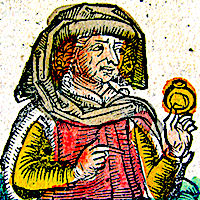
Ovid oʊvɪd (Publius Ovidius Naso)
43 BCE – 18 CE
Great poet and major influence on the Renaissance, Humanism, and world literature
Roman poet, inspiration for Renaissance humanism, consummate love elegist, and a tremendous influence on both Western literature and art; Ovid was staggeringly popular during his own time, during the Middle Ages, during the Renaissance, and still in our own time today. Fashioning himself as a love doctor, he wrote a 3-volume treatise called The Art of Love complete with instructional images and poetry about oral sex pleasure. It begins with teaching men how to best find a lover, seduce them, and later hide affairs. It continues with advice for women on how to avoid the traps and deceptions he has taught men. This also became immensely popular but his popularity didn’t serve him well politically. Emperor Augustus exiled him to a remote, harsh location where his friends avoided him and he remained until he died 9 years later.
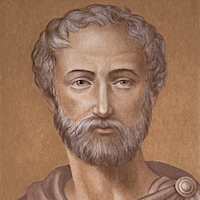
Pliny (Pliny Gaius Plinius Secundus, Pliny the Elder)
23 – 79 CE
Founding father of the encyclopedia
Roman natural philosopher, influential and prolific author, military commander, and a friend of emperor Vespasian; Pliny wrote probably the first and definitely the most influential encyclopedia, Naturalis Historia (Natural History). His only surviving manuscript, this comprehensive 37-book masterwork based on Stoic and pantheistic philosophy gives a unique window into Ancient Rome. Pliny died suddenly in 79 CE possibly while trying to rescue a friend and their family during the Mount Vesuvian volcanic eruptions.
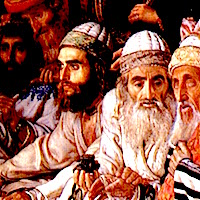
Rabbinic Sages
20 – 200 CE
Rabbinic Sages (20 – 200 CE)
Academies in Galilee, Tiberias and Caesarea; teachers of the Mishnah, transmitters of the Jewish traditions passed down for centuries orally, and written down during the first 200 years of this millennium; these sages taught and recorded commentaries and reflections on the Hebrew Bible. Their writings became the foundation of Jewish law, ethics, philosophy, and customs eventually evolving into over 6,200 pages.
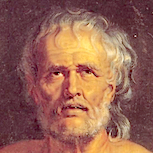
Seneca ˈsɛnɪkə (Lucius Annaeus)
4 BCE – 65 CE
Stoic philosopher, polititian, author, and first great Western thinker to describe the importance of relationship gratitude; Seneca taught and advised emperor Nero and for his efforts was forced to commit suicide. Humanist saint still popular and influential today, he influenced Dante, Chaucer, Petrarch, Erasmus, John Calvin, Shakespeare, Montaigne who was considered a "French Seneca,” and Joseph Hall considered “an English Seneca." Slandered by contemporaries, historians, and modern novelists as a sycophant to Nero and hypocrite, he did compromise to political expediency but also balanced faith and freedom promoting a simple and accepting lifestyle beyond anger, just politics, and global citizenship.
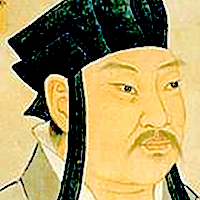
Yang Xiong 揚雄
53 BCE – 18 CE
"Confucius from the western parts,” poet, philosopher, I Ching scholar, and politician; Yang Xiong became one of the most famous people of the entire Han dynasty. His most well-known and influential book was Exemplary Sayings (法言) which includes him in our lineage of aphorists. He took a middle-ground approach between Xunzi and Mencius describing basic human nature as neither basic goodness or basic badness characterizing it as a complex combination.
Chinese Eras
Xia Dynasty 夏 (2100 – 1600 BCE)
Shang Dynasty 殷代 (1600 – 1046 BCE)
Western Zhou 西周 (1046 – 771 BCE)
Eastern Zhou 東周 (770 – 256 BCE)
Spring and Autumn period 春秋时代 (770 – 476 BCE)
Warring States period 春秋时代 (476 – 221 BCE)
Qin Dynasty 秦朝 (221 – 206 BCE)
Three Kingdoms 三國時代 (220 – 280 CE)
Southern and Northern 南北朝 (420 – 589 CE)
Tang Dynasty 唐朝 (618 – 907 CE)
5 Dynasties 10 Kingdoms (907 – 960 CE)
5 Kingdom of Dali 大理国 (937 – 1253 CE)
Western Xia 西夏 (1038 – 1227 CE)
Southern Song (1127 – 1279 CE)
Comments (0)